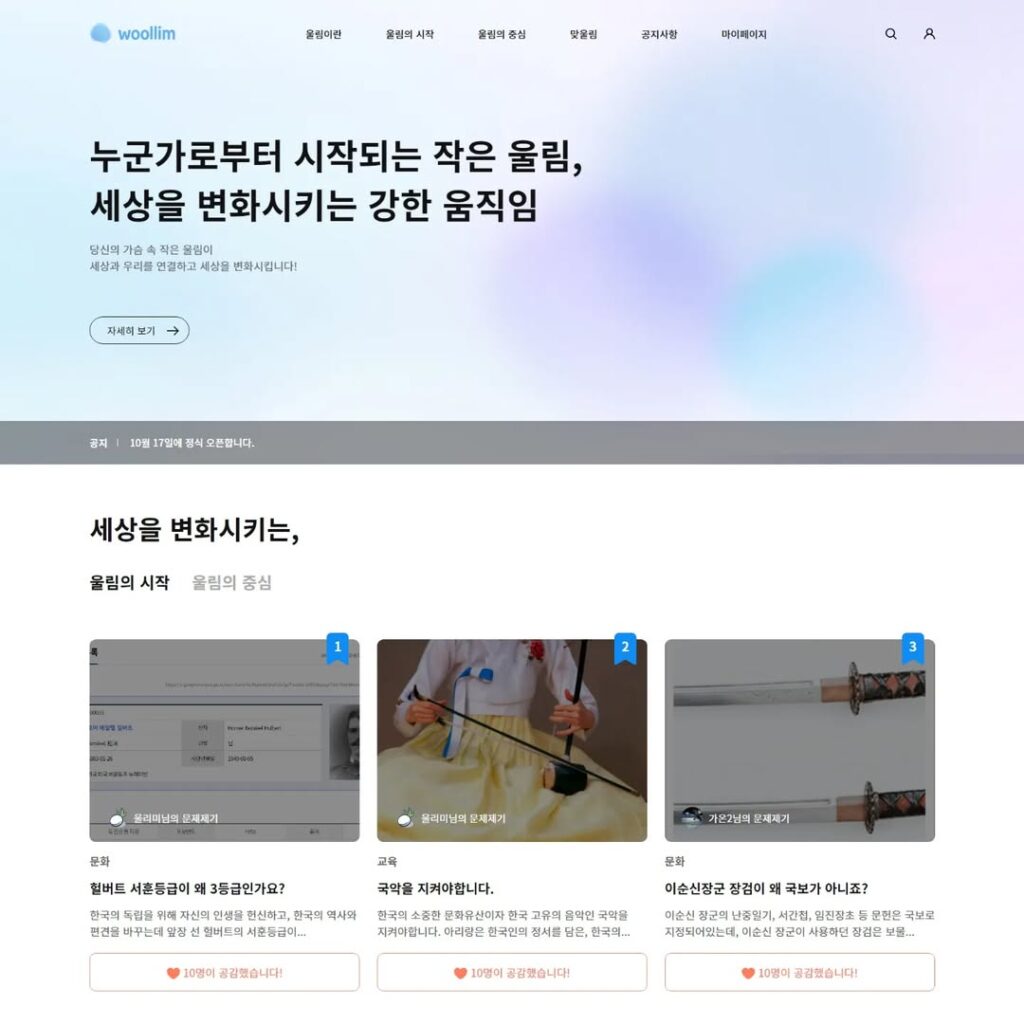
Since its establishment in 1999, the Voluntary Agency Network of Korea (VANK) has been actively engaged in digital diplomacy to promote an accurate understanding of Korea worldwide. The organization has worked tirelessly to correct historical and cultural inaccuracies found in international search engines, websites, and textbooks.
In 2019, VANK began launching global petitions across various platforms, and in April 2021, it established a dedicated global petition platform to safeguard Korea’s history and culture.
The global popularity of Hallyu (the Korean Wave) has sparked increasing interest in Korea’s history and cultural heritage. With over 150 million Hallyu fans worldwide and a rapid rise in Korean language learners, there is a growing need for sustained campaigns to ensure accurate representation of Korea’s history and culture abroad. At the same time, domestic policies must be reinforced to preserve and promote Korean heritage effectively.
One such issue arose when China attempted to claim Korea’s kimchi as its own by promoting it as pao cai. During its investigations, VANK discovered that Korea’s Ministry of Culture, Sports and Tourism had mistakenly used the term pao cai instead of kimchi in official documents.
VANK immediately raised concerns and persistently campaigned for corrections. As a result, several key institutions revised their references:
- The Korea Tourism Organization removed the mistranslation of kimchi as pao cai.
- EBS, Korea’s national educational broadcaster, corrected the misrepresentation of kimchi in its Chinese language study materials for the national college entrance exam.
- Errors in Korean history textbooks and educational materials published in China were rectified.
- Major Korean dictionary services on Naver and Daum removed the incorrect equivalence of kimchi with pao cai.
Beyond cultural heritage, VANK has also actively campaigned for national policy changes. One notable initiative involved advocating for the elevation of Dr. Homer Hulbert’s state honor from the third to the highest grade. Hulbert, a foreign independence activist, made significant contributions to Korea’s independence movement. By mobilizing public support and urging the Ministry of Patriots and Veterans Affairs to reconsider his recognition, VANK successfully raised awareness of his legacy.
To further promote public engagement, VANK has launched ‘Woollim’, a citizen-driven policy platform that allows Koreans to voice concerns, propose solutions, and contribute directly to shaping historical and cultural policies.
‘Woollim’ serves as both a policy development hub and a space for fostering historical and cultural awareness. It enables citizens to identify key issues, propose actionable solutions, and develop policies that reflect the collective will of the people.
▶ Visit the Woollim Platform: https://www.woollimkorea.net
Designed for ease of participation, ‘Woollim’ operates through a two-step process:
- Issue Identification & Error Reporting – Users can highlight inaccuracies or problems in historical and cultural representation.
- Policy Proposal – Submitted issues can be developed into concrete policy suggestions.
Through this platform, VANK aims to encourage broader public involvement, allowing individuals to transform their concerns into tangible policy changes.
‘Woollim’ consists of three main sections:
- ‘Beginning of Woollim’ (울림의 시작) – A space for identifying historical or cultural issues and reporting errors.
- ‘Core of Woollim’ (울림의 중심) – Where proposed issues evolve into concrete policy solutions.
- ‘Echo of Woollim’ (맞울림) – A section documenting cases where discussions have successfully led to policy implementation.
Currently, several petitions are active on the Woollim platform, including:
✅ Establishing a memorial hall for foreign independence activists
✅ Correcting the mistranslation of eomuk (fish cake) in English dictionaries
✅ Officially designating a “Jikji Day” in the national calendar
Additionally, the platform features a ‘Support’ function that allows users to endorse and amplify policy proposals.
VANK envisions ‘Woollim’ as a long-term initiative where individuals can actively participate in shaping Korea’s historical and cultural landscape.
Lee Da-bin, a VANK youth researcher who helped develop the platform, expressed hope for its impact:
“We want ‘Woollim’ to serve as a comprehensive and sustainable platform where various historical and cultural issues can be discussed and developed into policies. Our goal is to create a powerful ‘echo’ that drives real change—not alone, but together.”
Historically, while the Korean government and National Assembly have attempted to reflect youth voices in cultural and diplomatic policies, there have been few cases where young people’s ideas were directly incorporated into national policies.
Lee emphasized the role of ‘Woollim’ in bridging this gap:
“VANK has been at the forefront of correcting global misrepresentations of Korea, such as advocating for the use of ‘East Sea’ instead of ‘Sea of Japan.’ Now, through ‘Woollim,’ we hope to create a public discourse that ensures young people’s voices are reflected in national policies.”